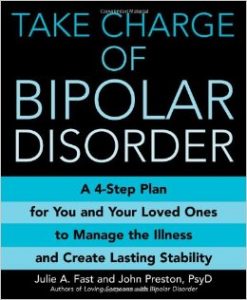Originally published by Bp Magazine

If your adult child and his or her bipolar disorder symptoms are taking center stage, than you may be living in a “hijacked house.”
by Julie A. Fast
It is a bit of a “joke” to talk about how many millennials have moved back in with their parents. But when the millennial has bipolar disorder, it’s rarely funny at all. If you’re a parent of an adult child with bipolar disorder who is living at home, losing control of your house is common and for many, very unsettling. What do I mean by losing control of your house?
Are you afraid to force a child to do housework as it might make the child more ill?
Does the child have a completely different sleeping schedule than yourself and other members of the family?
Does your child play video games instead of working?
Maybe substances are involved you would rather not have in your presence.
And finally, you might hear this from the child, “I’m an adult now! You can’t tell me what to do! My health care is my own business and not something you need to ask me about all of the time!”
When I work with families, I use the term “The Hijacked House” to describe a situation where the child and the child’s bipolar disorder take center stage and the rest of the family feels out of place and without much of a say in the current living situation. Many times this happens even if people have the best intentions. Bipolar disorder is a serious illness and if a child has moved back home due to the illness, there is a good chance they are in need of help.
But, having an illness is not an excuse for certain behaviors and it is up to parents to take back the home if the situation has become too uncomfortable. I teach people to do this through a conversation. Here is an example:
Jorge, it is great having you home and knowing that you’re safe makes me feel a lot better. I’ve heard you say you want to get back to work and that you might even go back to school. This is great and it got me to thinking about what I want and need in life as well. I realized that while you’re here, I need you to talk with me about your health care so that I can ease my own anxiety over what happened. When I ask questions about your medications or treatment, it is not out of nosiness or trying to pry into your life, it is for myself and my desire to be a part of your health care team. While you live here, we are a team. This means exchanging information. We can set up a specific time to talk about this once a week if that works better for you.
If you are in a situation where a conversation such as this one is not even possible, two things are probably happening: One, your child is too sick to hear you and needs better treatment, or your child is unable to find the empathy and maturity needed to understand that living at home as an adult comes with adult requirements, just as if your child rented a room from someone. In the second case, talking with your child about your needs helps you move towards a more balanced relationship.
None of this is easy. If you’re reading this as a parent and feel like you have been blindsided by your child moving back in, this is normal! Bipolar is complicated and it takes time for everyone to find a balance after a big change. I have seen an adult child moving back home turn in to the absolutely best possible scenario when all of the pieces of the puzzle are seen clearly. This can happen for you, but first, I suggest that you see if your house that you pay for has been hijacked by bipolar disorder and if it’s time to take it back for yourself.
Julie
I highly recommend Bp Magazine. I have a private group for parents on Facebook called The Stable Table.





